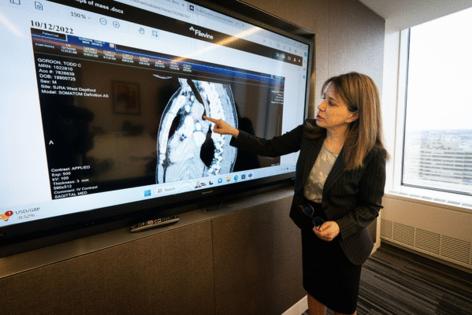Having surgery? Here's what patients can ask surgeons to help prevent a particularly harmful error
Published in Health & Fitness
When a surgeon accidentally leaves a surgical tool inside a patient’s body after a procedure, the harm can be severe. The patient can suffer from life-threatening infections, organ damage, and an additional surgery to remove the object.
This type of medical error is extremely rare. But it does happen:
An Inquirer investigation identified 203 cases in which patients at 39 Philadelphia-area hospitals received treatment related to a surgical item accidentally left inside their bodies during a procedure, according to an analysis of Pennsylvania hospital billing records from 2017 through 2022.
Patient safety experts say a single case is one too many. Government health regulators call these medical errors “never events” because they should never happen.
Sponges used to sop up blood during surgery are the most common item erroneously left inside patients. Another frequently missed item is a broken catheter fragment, said Marcus Schabacker, president of ECRI, a national nonprofit organization aimed at improving patient safety in Plymouth Meeting, Pennsylvania.
Schabacker, an anesthesiologist and intensive care specialist, is not your typical patient. He prefers to stay awake under local anesthesia and watch to make sure surgical teams don’t mistakenly leave catheter parts or other objects behind. “If you are conscious, you can say, `Hey, did you remove the whole thing?” Schabacker said.
Most patients don’t stay awake during surgery, but can still take steps to protect their own safety. For example, Schabacker recommends that patients familiarize themselves with safety measures that hospitals employ to prevent objects being left behind and talk to their surgeon before the procedure about which protocols will be followed.
The Inquirer spoke with Schabacker and Carl Sirio, chief medical officer at Temple Health, about some of those safety measures:
Manual supply counts
A designated operating room staffer, typically a nurse, counts all items. This includes a count of sponges and instruments before, during and after the procedure (but before closing the incision). Protocols include:
...continued
©2024 The Philadelphia Inquirer, LLC. Visit at inquirer.com. Distributed by Tribune Content Agency, LLC.







Comments